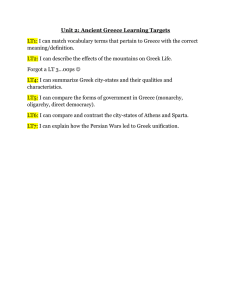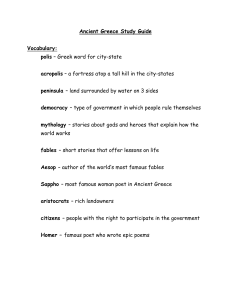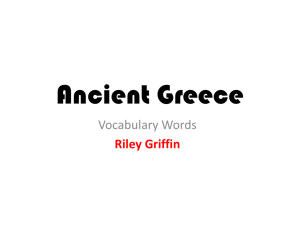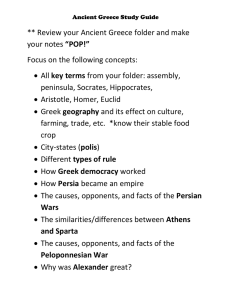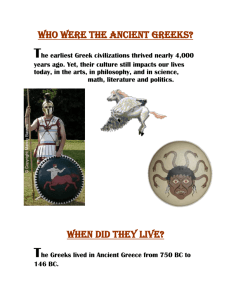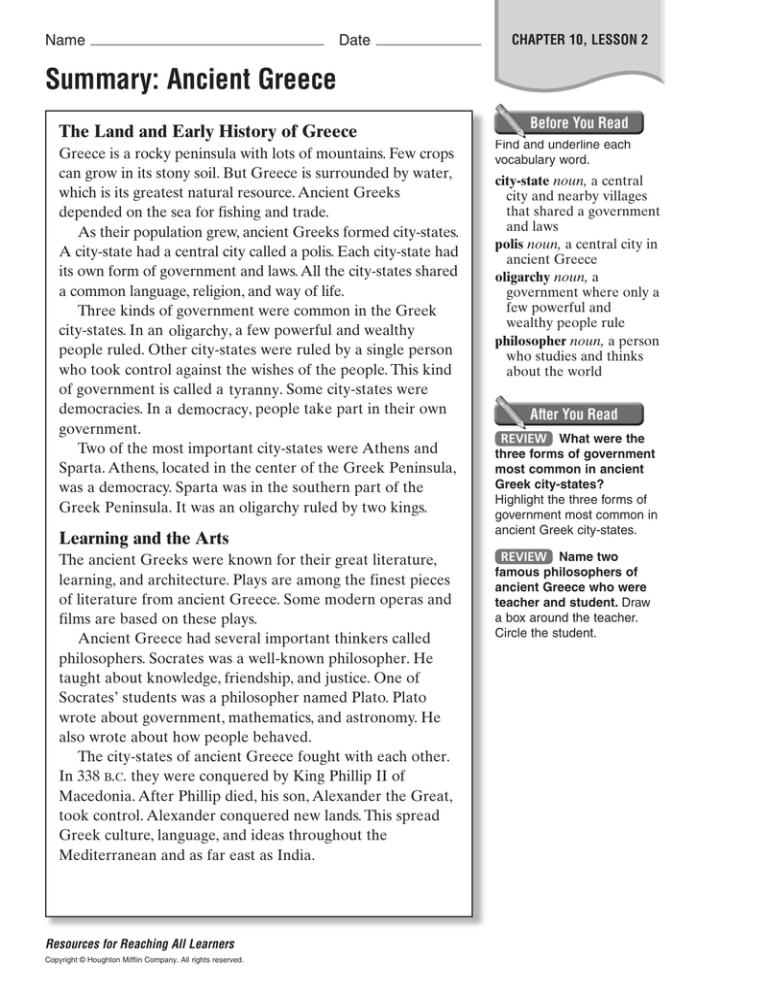
Name
Date
CHAPTER 10, LESSON 2
Summary: Ancient Greece
The Land and Early History of Greece
Greece is a rocky peninsula with lots of mountains. Few crops
can grow in its stony soil. But Greece is surrounded by water,
which is its greatest natural resource. Ancient Greeks
depended on the sea for fishing and trade.
As their population grew, ancient Greeks formed city-states.
A city-state had a central city called a polis. Each city-state had
its own form of government and laws. All the city-states shared
a common language, religion, and way of life.
Three kinds of government were common in the Greek
city-states. In an oligarchy, a few powerful and wealthy
people ruled. Other city-states were ruled by a single person
who took control against the wishes of the people. This kind
of government is called a tyranny. Some city-states were
democracies. In a democracy, people take part in their own
government.
Two of the most important city-states were Athens and
Sparta. Athens, located in the center of the Greek Peninsula,
was a democracy. Sparta was in the southern part of the
Greek Peninsula. It was an oligarchy ruled by two kings.
Learning and the Arts
The ancient Greeks were known for their great literature,
learning, and architecture. Plays are among the finest pieces
of literature from ancient Greece. Some modern operas and
films are based on these plays.
Ancient Greece had several important thinkers called
philosophers. Socrates was a well-known philosopher. He
taught about knowledge, friendship, and justice. One of
Socrates’ students was a philosopher named Plato. Plato
wrote about government, mathematics, and astronomy. He
also wrote about how people behaved.
The city-states of ancient Greece fought with each other.
In 338 B.C. they were conquered by King Phillip II of
Macedonia. After Phillip died, his son, Alexander the Great,
took control. Alexander conquered new lands. This spread
Greek culture, language, and ideas throughout the
Mediterranean and as far east as India.
Resources for Reaching All Learners
Copyright © Houghton Mifflin Company. All rights reserved.
Find and underline each
vocabulary word.
city-state noun, a central
city and nearby villages
that shared a government
and laws
polis noun, a central city in
ancient Greece
oligarchy noun, a
government where only a
few powerful and
wealthy people rule
philosopher noun, a person
who studies and thinks
about the world
REVIEW What were the
three forms of government
most common in ancient
Greek city-states?
Highlight the three forms of
government most common in
ancient Greek city-states.
REVIEW Name two
famous philosophers of
ancient Greece who were
teacher and student. Draw
a box around the teacher.
Circle the student.

